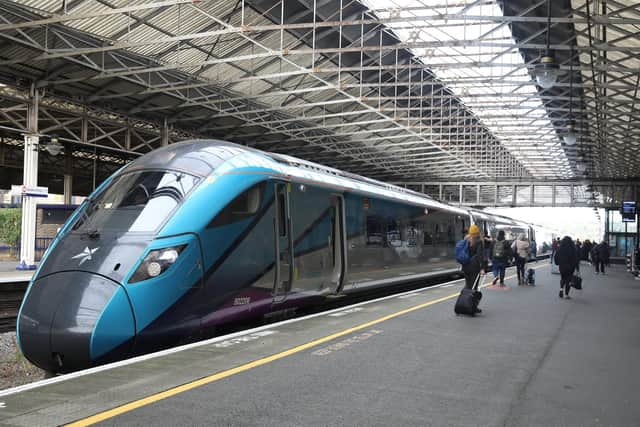Passenger experience in Yorkshire shows why we need to renationalise Britain’s railways - Andrew Vine
The long-suffering commuters and leisure travellers of our region have been the hapless victims of a failed 28-year experiment of trying to run a privatised rail network that ought to be acknowledged as the mistake it was and consigned to history.
If ministers paused for a moment and reflected on everything that has gone wrong with the railways over the course of those three decades, it should strike them that our region has suffered more than anywhere else.
Advertisement
Hide AdAdvertisement
Hide AdWe’ve endured the worst services, worst rolling stock and worst operators.


Last week’s axing of the TPE contract to run trains is the fifth time our region has witnessed services having to be taken back into public control in order to operate them properly.
How much more proof is needed that privatisation of the railways has not worked?
Operators of our link to London via the east coast main line failed not once, but three times in succession, despite it being one of the principal strategic transport routes anywhere in Britain.
Advertisement
Hide AdAdvertisement
Hide AdGreat North Eastern Railways was followed by National Express East Coast and then Virgin Trains. Only since the Government took over in 2018 have passengers got an efficient service.
Then there was Northern, in its day as notorious a byword for rotten services as TPE became, cramming passengers onto rattling, obsolete Pacer trains until two years ago, with only cast-offs from southern operators to look forward to as replacements.
Matters only began to improve with the termination of Arriva Rail North’s contract in 2020.
And now the utter debacle that is TPE, with the country’s worst record of cancellations, and its cynical, underhand tactics to try to disguise how bad things were by cutting services at the last minute in an attempt to massage the figures.
Advertisement
Hide AdAdvertisement
Hide AdTaken together, the experiences of Yorkshire add up to a case study in how not to run a rail network. How much economic damage these failures have caused can only be guessed at, but it’s fair to say that our region has undoubtedly suffered as a result.
The entire concept and execution of privatising the railways has been a mess since it was first introduced in 1995, towards the end of John Major’s government, which did it as much to counter a sense that it had run out of steam than for the benefit of passengers.
It was a botched job from the word go, ill thought-through and dependent on an unwieldy structure that built inconsistencies and inefficiency into the system by separating the franchised companies from ownership of the track.
A labyrinthine ticketing system has hobbled the network, and greedy operators badly misjudging what could be made from running trains found themselves unable to make the sums add up.
Advertisement
Hide AdAdvertisement
Hide AdScrapping the whole set-up and starting again with a proper nationalised network is the only way forward.
And we’re nearly there already. The railways were effectively renationalised during the pandemic, with our money propping them up to the tune of £6bn a year.
The Government has acknowledged that better central control is needed with the planned introduction of a new co-ordinating body, Great British Railways.
The Prime Minister should have the courage to take the final step and announce the railways will henceforth be state-owned and run.
Advertisement
Hide AdAdvertisement
Hide AdAnd if he won’t, Labour’s manifesto for the next election should make it a pledge. Countless rail passengers would vote for it, because they have experienced the nightmare journeys that prove privatisation has not worked.
If we need advice about how to do it, ministers and civil servants need only take a trip to France, where the state-run railway, SNCF, is one of the best networks in the world, fast, punctual, and consistently scoring highly for customer satisfaction. Not only that, but it is profitable too.
If France can make railways work, why shouldn’t we?
It’s become a cliché for any talk of renationalisation to be greeted with the weary repetition of the failings of British Rail from the 1970s, with its clapped-out rolling stock and reputation for surly staff.
That is a redundant response. Compared with the likes of TPE, even the old BR looks like a beacon of efficiency.